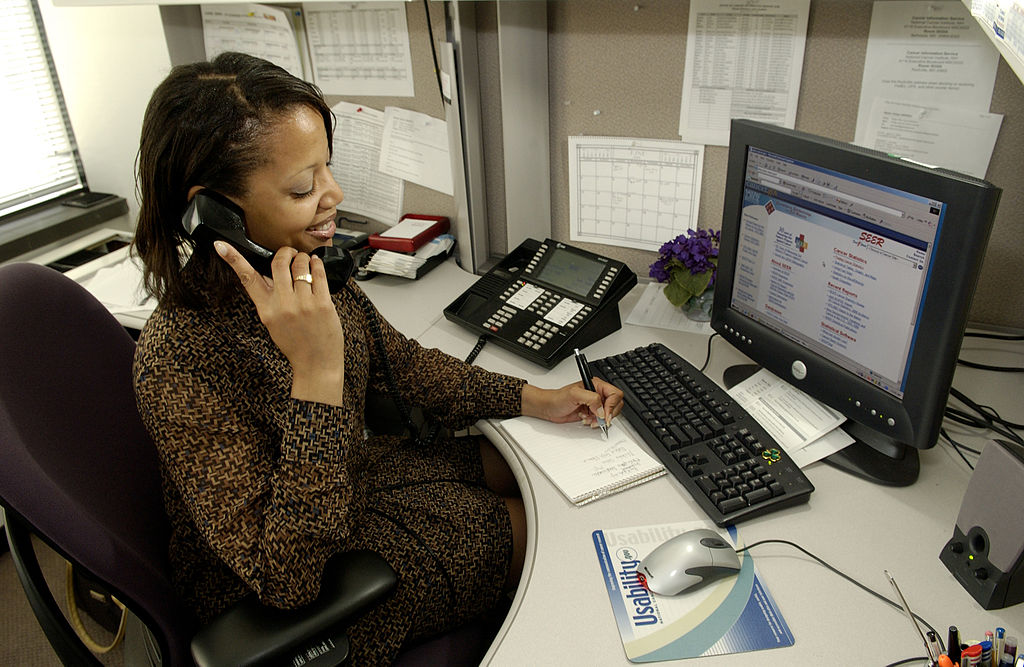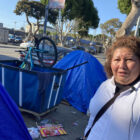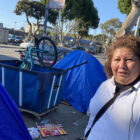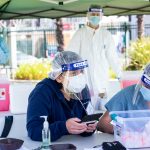San Francisco has set a goal of communicating with 90% of the people here who test positive for the novel coronavirus and also reaching 90% of their close contacts. But in part due to a delayed trove of test data, the city has reached just 73% of the people for whom it received positive test results over the previous two weeks and 84% of those peoples’ close contacts.
In contact tracing, health workers identify and reach out to people who have an infectious disease, then try to determine with whom they have been in close contact and to whom they may have transmitted the disease. Then they try to reach those potentially exposed people. When case investigators and contact tracers talk with someone who has tested positive or potentially been exposed, they ask questions, but they also make testing and resource referrals, and give directions on how to try to stop the disease from spreading further.
Dr. Darpun Sachdev, the contact tracing program lead in San Francisco, and Luis Hernandez, a local case investigator, spoke with “Civic” about how contact tracing works, who is doing the job and what the latest contact tracing data reflect.
Sachdev said the contact tracing team only has a window of about five days to identify and reach the close contacts of a person who tested positive in order to warn them before they potentially expose more people to the virus. That’s why the recent delay in labs delivering several thousand test results, more than a hundred of them positive, was such a setback.
“It’s important for us to stay focused on the recent cases where we have the greatest likelihood of identifying contacts who have not yet developed symptoms and have not yet transmitted the disease,” Sachdev said. “We have just not been able to keep pace with the growth in new cases. We do believe that we will be able to catch up.”
Another concern is language, as Latinos have been disproportionately impacted by the pandemic. Hernandez said many people he contacts are relieved to find he speaks Spanish.
“When I started doing this work, I never imagined that there would be so many Spanish speaking cases. And I am grateful that I am here and that I can serve my community,” Hernandez said.
A segment from our radio show and podcast, “Civic.” Listen at 8 a.m. and 6 p.m. Tuesdays and Thursdays at 102.5 FM in San Francisco, or online at ksfp.fm, and subscribe on Apple, Google, Spotify or Stitcher.










